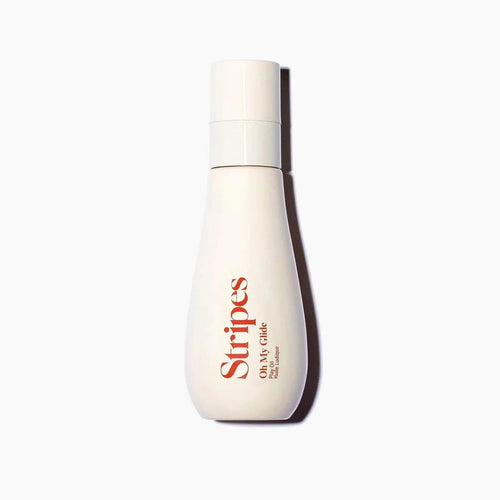Night sweats can make it hard to fall and stay asleep at night, perpetuating a cycle of sleep deprivation, stress, and — you guessed it — more daytime hot flashes.
What causes night sweats in menopause?
Night sweats are just hot flashes that happen at night, so they share the same causes and contributing factors (all related to the relationship between your brain and hormones). Interestingly, night sweats usually happen before hot flashes during the menopause transition.Now, it might seem like the cooler air of the night would lessen the intensity or frequency of night sweats, but sadly that’s not always the case. For many, the problem actually gets worse at night due to certain health conditions (anxiety or high blood pressure, for example) or lifestyle factors (like caffeine, drinking alcohol, and eating spicy food).
Obviously night sweats are infuriating in the moment, but they can have a big impact on your well-being over time, because you’re just sleeping less. Insomnia is already super common during (peri)menopause, and night sweats only add to the discomfort.
Without proper rest, you may wake up feeling fatigued and irritable the next day. And thanks to your grogginess, it might be hard to focus on everything you need to get done. (Remember those hazy newborn days and nights or working that crazy overnight shift at work?) This only increases your stress levels, adding to an already miserable cycle.
How can I prevent night sweats?
It may not be possible to stave off the sweats altogether, but your lifestyle can increase — and decrease! — the odds you’ll wake up soaked. That’s why it’s so important to really take stock of your habits and routines as you enter this strange new normal.Skip the cocktails. Alcohol can affect your core body temperature, inciting night sweats. Alcohol in general can also interfere with your sleep quality, which isn’t helpful if you’re already struggling with insomnia. So instead of drinking a cocktail or glass of wine before bed, stick with water or herbal tea.
Zen out before bedtime. Stress is one of the leading causes of worsening menopausal symptoms (not to mention mental health issues and overall well-being). Think about what happens to you when you’re under stress. You probably feel your body temperature rising and then you get sweaty. That’s because stress hormones raise your body temperature, heart rate, and blood pressure — and all those things trigger night sweats.
The best thing to do is find ways to manage and relieve stress before going to sleep. One of the simplest things you can do is deep breathing exercises before bed. Take half an hour to sit still with your eyes closed, and focus on breathing deeply. Follow along to a breathing exercise video or download a meditation app. Deep breathing helps relax the brain and body by increasing the amount of oxygen that gets circulated to the brain and muscles. It’s a good conduit for maintaining a steady body temperature.
Instead of sitting on the couch scrolling through work emails or social media posts, engage in one of your favorite hobbies. Read a book, paint, sketch, sew, do yoga — whatever brings you joy and helps you decompress.
Create a cool environment. When it comes to preventing night sweats and insomnia, sleep hygiene can be game changer. Set your thermostat to a cool temperature — ideally, the mid or high 60s — and set up a fan in your bedroom to boost cool airflow. Rather than sleep under scratchy, heat-trapping sheets, choose cooler materials like bamboo or linen. Soft, lightweight nightclothes or lingerie — think breathable cotton — are your best option, if you wear any clothes at all.
When should I talk to my doctor about night sweats?
Night sweats may be par for the course right now, but that doesn’t mean you have to skimp on sleep for the foreseeable future. Simple routine adjustments can make a big difference, but if you’re tossing and turning every night in a pool of sweat and feel like you’re stuck in an unbearable cycle, check in with your medical provider.Your gynecologist or primary care physician can suggest more effective ways, whether lifestyle changes, medications, or hormone replacement therapy (HRT), to keep night sweats at bay so you sleep more soundly.





